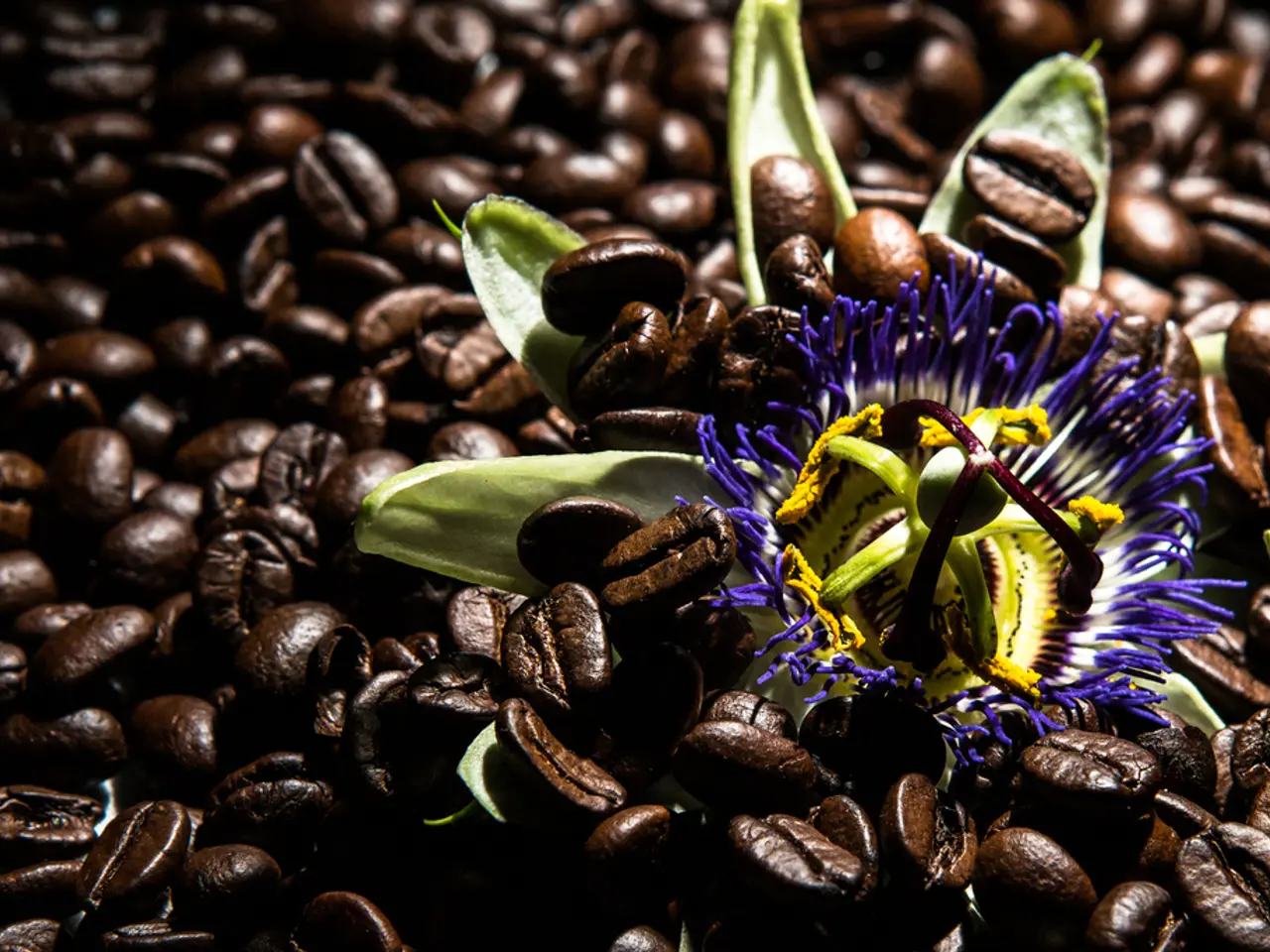Utilizing Coffee Waste for Cannabis Plant Soil Fortification
In the world of gardening, coffee grounds have emerged as a versatile and eco-friendly resource. But before you start sprinkling them around your plants willy-nilly, it's essential to understand their effects on different plant species and soil conditions.
Firstly, it's worth noting that compost made from coffee grounds is a superior choice compared to using fresh coffee grounds directly. Fresh coffee grounds can be phytotoxic to some plant species, potentially reducing growth and germination rates.
However, coffee grounds, when composted or mixed into soil, can offer numerous benefits. They are a rich source of nutrients, providing nitrogen, potassium, and phosphorus, as well as organic matter that aids in soil structure and water retention.
The caffeine in coffee grounds can also serve as a natural pest deterrent. Insects, such as ants, may find the caffeine harmful, and the grounds' acidity can damage their exoskeletons. Additionally, the coarse texture of coffee grounds can act as a physical barrier, deterring pests like slugs and snails from reaching plants.
Coffee grounds are particularly useful in deterring pests in cannabis gardens, where they can keep unwanted visitors like ants, slugs, snails, cats, and rabbits at bay.
Yet, it's crucial to exercise caution when applying coffee grounds to the soil. A thick layer of coffee grounds can prevent water and air from reaching plant roots, potentially causing harm. To mitigate this risk, it's advisable to mix coffee grounds with other compost materials or to apply them sparingly.
When it comes to plants sensitive to excessive acidity from coffee grounds, common garden plants such as tomatoes, beans, and some ornamentals prefer neutral to slightly acidic soil. To avoid lowering the soil pH too much, measures such as mixing coffee grounds with other compost materials, liming the soil to neutralize acidity, and testing soil regularly to monitor pH levels are recommended.
Lastly, coffee grounds are a great addition to worm bins, serving as a food source for worms and helping to remove any leftover caffeine or tannins from spent grounds. Composting with coffee grounds also speeds up the composting process, helping form soil aggregates, boost aeration, retain water, and increase cation exchange capacity.
In conclusion, while coffee grounds offer numerous benefits for gardening, it's essential to use them judiciously and consider the specific needs of your plants and soil. With careful application, coffee grounds can be a valuable ally in maintaining a thriving garden.
Read also:
- Understanding Hemorrhagic Gastroenteritis: Key Facts
- Stopping Osteoporosis Treatment: Timeline Considerations
- Tobacco industry's suggested changes on a legislative modification are disregarded by health journalists
- Expanded Community Health Involvement by CK Birla Hospitals, Jaipur, Maintained Through Consistent Outreach Programs Across Rajasthan








